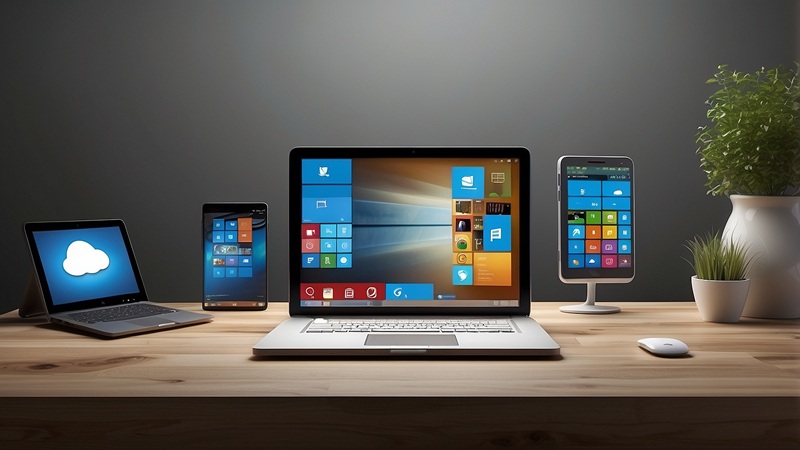

Download your prepared apps
Resources


With growing risks such as hackers, data breaches, and intrusive surveillance, taking action to protect your personal information online is essential. This is where a Virtual Private Network (VPN) becomes a valuable tool.
In this beginner’s guide, we’ll cover everything you need to know about VPNs: what they are, how they work, why you might need one, and how they can benefit you in your everyday life.
A VPN (Virtual Private Network) is a service that creates a secure, encrypted connection between your device and the internet. It acts as a tunnel that protects your data and online activities from being seen by anyone else—whether it’s your Internet Service Provider (ISP), hackers, or even government agencies.
When you use a VPN, your internet traffic is routed through one of the VPN provider’s servers before reaching the website or service you’re trying to access. This process masks your real IP address and makes it look like you’re browsing from the location of the VPN server, thus hiding your identity and online activities.
In simple terms, a VPN ensures that you can browse the web privately and securely.
When you connect to the internet without a VPN, all of your data travels through your ISP’s servers and can be easily accessed or monitored by your ISP, government agencies, or hackers.
Here’s how a VPN changes this process:
There are many reasons why using a VPN is important in today’s online environment. Here are some of the key benefits:
Without a VPN, your ISP can track everything you do online: the websites you visit, the content you consume, and even your private communications. By using a VPN, you can prevent your ISP from collecting and selling your browsing data to advertisers or third parties.
Public Wi-Fi networks, like those in cafes, airports, or hotels, are often unsecured and easy targets for hackers. A VPN encrypts your data, protecting you from cybercriminals who might try to intercept sensitive information like your login credentials, bank details, or personal emails.
Many websites and services restrict access based on your geographical location. With a VPN, you can connect to servers in different countries, bypassing geo-blocks and accessing streaming services or websites that are unavailable in your region.
A VPN hides your IP address, making it difficult for websites, advertisers, or anyone else to track your online activities. This is especially useful if you want to browse the web anonymously or avoid targeted ads.
In some countries, governments impose strict censorship on the internet, blocking access to social media platforms, news sites, and other content. A VPN allows users in these countries to bypass censorship and access the information they need without fear of government surveillance.
Torrenting can expose your IP address to others, leaving you vulnerable to cyberattacks or legal consequences. A VPN shields your identity when downloading or uploading files via peer-to-peer (P2P) networks, ensuring that your torrenting activities remain private and secure.
With so many VPN services available, it’s essential to choose one that meets your specific needs. Here are some factors to consider:
Ensure the VPN offers strong encryption (AES-256 is the industry standard) and advanced security protocols like OpenVPN or IKEv2. Look for a VPN with a kill switch that automatically disconnects you from the internet if the VPN connection drops, preventing your data from being exposed.
A reputable VPN should have a strict no-logs policy, meaning they don’t keep any records of your online activities. This guarantees that your privacy is protected, even from the VPN provider itself.
Look for a VPN with a wide range of server locations, especially if you want to access geo-restricted content from specific countries. The more servers, the better your chances of finding a fast and reliable connection.
VPNs can slow down your internet connection due to encryption overhead. Choose a VPN that is optimized for speed, particularly if you plan to stream, game, or torrent frequently.
Make sure the VPN supports all the devices you use. Most VPNs work on Windows, macOS, Android, iOS, and routers, but some also offer extensions for browsers like Chrome or Firefox.
If you have multiple devices, look for a VPN that allows multiple simultaneous connections under one account. This way, you can protect your laptop, phone, tablet, and other devices all at once.
While VPNs offer many benefits, there are a few things to keep in mind:
Using a VPN is easier than you might think. Here’s a quick guide:
In an age where online privacy is under constant threat, a VPN is an essential tool for protecting your data and ensuring your freedom on the internet. Whether you’re concerned about security on public Wi-Fi, accessing geo-blocked content, or simply maintaining your privacy, a VPN like X2VPN offers a reliable and effective solution.
By using a VPN, you’re taking control of your online presence, shielding your personal information from prying eyes, and enjoying the internet without restrictions.